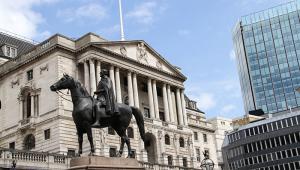In this Budget, the chancellor has done the minimum he could get away with on public services.
And while there are some positive signs, he has not done enough to break free of his reactive cycle in public spending.
The political pressure to spend more on the NHS could not be ignored.
But the headline cash injection of £2.8bn in extra resource funding up to 2019/20 falls far short of the £4bn that sector experts – and NHS Chief Executive Simon Stevens – say is needed in 2018/19 alone.
This short-term sticking plaster cash disappears in 2020, suggesting that another round of the ‘crisis, cash, repeat’ cycle awaits us.
Hammond also indicated that he would be willing to fund new pay awards for some NHS staff, but only referred to pay scales which exclude doctors, dentists and managers.
This either means that they won’t get a pay boost – questionable given the 5% fall in GP numbers since 2015 – or potentially that their wages will have to come from already-squeezed budgets.
The announcement of a £3.5bn capital investment in the NHS is more positive, particularly the £2.6bn pledged for Sustainability and Transformation Partnerships – vitally needed to turn them into real vehicles for change.
However, to meet the recommended £10bn investment outlined in the independent Naylor review, the government still needs to find over £5bn through property disposal and private investment in primary care.
Elsewhere, schools got a small funding boost to develop maths teachers and train up new computer science specialists – a sensible response to shortages in those specific areas.
Last year, the target for maths trainees was missed by 16% (497) and for computer science trainees by 32% (228).
But there are warning signs in other services, which didn’t get a look in.
In response to spiralling prison violence – assaults on staff up 83% between 2013 and 2016 – the chancellor gave an extra £500m to Ministry of Justice last Autumn.
However, forecasts for prisoner numbers have since been revised upwards: prisoner numbers are now set to be 2,900 higher in 2021 than previously thought.
Meanwhile, prison violence has continued to increase.
Further action – to recruit more officers, retain existing ones, or reduce the prison population – may well be needed to prevent the crisis in the sector from deepening further.
The chancellor was silent on social care.
Last week it was announced that the promised green paper has essentially been pushed back a year (to summer 2018), raising serious questions about this government’s willingness and ability to grip this vital long-term issue.
It also all-but guarantees that the chancellor will need to return with more money when the extra £2bn he pledged last Spring runs out in 2020, unless the government can come up with a speedy medium-term reform plan.
Given his political constraints, it is perhaps unsurprising that the chancellor delivered such a slight budget.
But his unwillingness – along with his Cabinet colleagues – to grip the issues that will cause them political pain further down the road gives us an insight into their current state of mind.
It’s almost as if they don’t think the problems of the 2020s will be theirs to deal with.




















